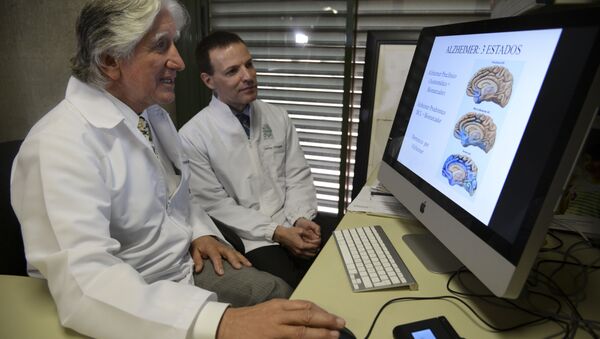"This is the first time an investigational drug for Alzheimer’s disease has demonstrated a statistically significant reduction on amyloid plaque as well as a statistically significant slowing of clinical impairment in patients with prodromal or mild disease," said Alfred Sandrock, chief medical officer at Biogen Idec. "Based on these results, we are advancing the Aducanumab clinical program, to Phase 3 with plans to initiate enrollment later this year."
Amyloid plaques, which are found between the neurons in the brain, are buildups of protein which occur as part of the normal aging process, but in Alzheimer's patients they build up in far greater amounts. Another type of brain lesion, called neurofibrillary tangles, occur inside the brain's neurons and are also implicated in Alzheimer's disease.
Aducanumab, also known as BIIB037, is a monoclonal antibody which acts against the beta-amyloid which make up the amyloid plaques in the brain; the drug was originally derived by the biotech company Neurimmune from healthy, aged donors who were cognitively normal, under the rationale that their immune systems had successfully resisted Alzheimer’s disease.
The trial is expected to end in 2016, and on Friday Biogen Idec presented the results of its interim analysis at the 12th International Conference on Alzheimer’s and Parkinson’s Diseases and Related Neurological Disorders in Nice.



